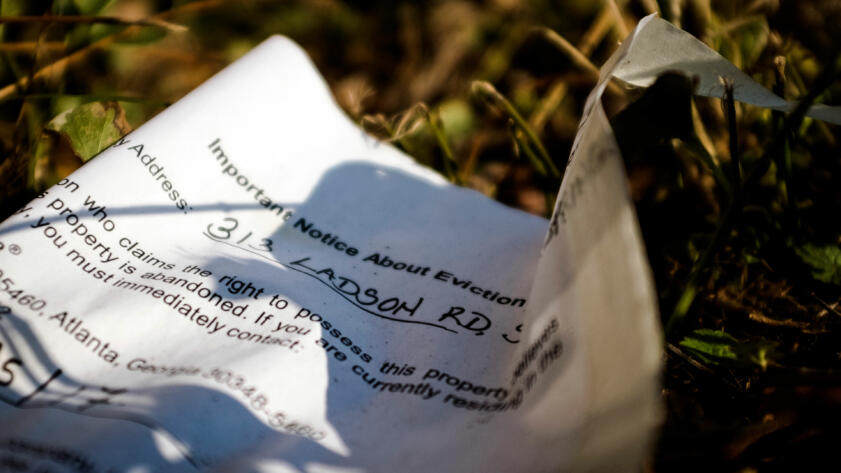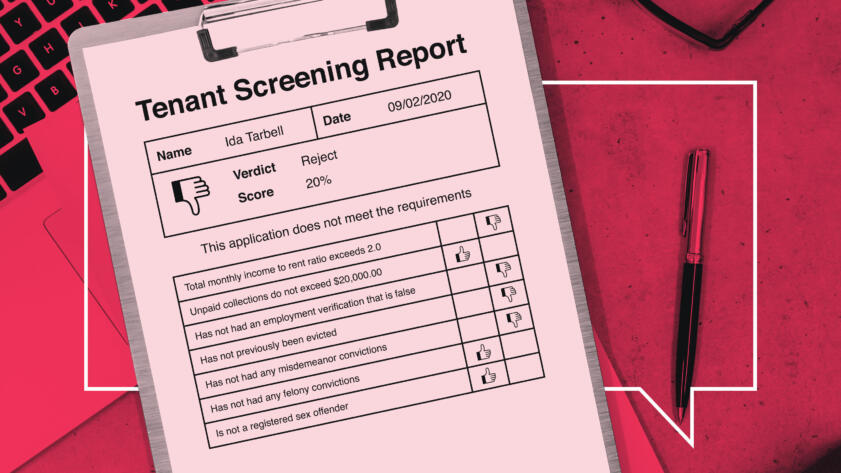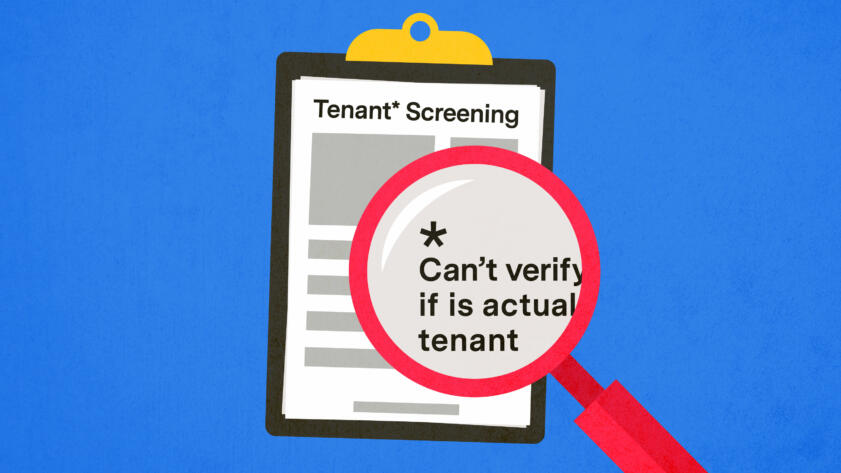Last month, the Federal Trade Commission put a rare spotlight on the little-known but powerful tenant-screening industry when it fined AppFolio $4.25 million. The company, regulators said, is selling inaccurate background reports about housing applicants to landlords and making sloppy mistakes that ultimately cost people housing.
“Too often, AppFolio’s reports contained outdated or flat-out incorrect information about applicants’ eviction history and criminal records,” wrote FTC commissioner Rebecca Kelly Slaughter. “AppFolio’s careless practices directly resulted in qualified tenants being turned away from potential homes.” (In a statement, AppFolio’s president and CEO said the company remained committed to accurate and timely tenant-screening reports.)
Such problems are common—as The Markup has documented in an ongoing series—but have gotten little attention. In the months since The Markup published our report, however, a number of potential solutions have started to make headway. And particularly now, as millions of people find themselves struggling to pay rent, proposals are gaining traction. Here are some of the big ones.
Make Eviction Filings Private—at Least in Some Cases
Some states (including California, Illinois, and Minnesota) have for years automatically sealed some eviction records before they are made public or sold to data brokers. Massachusetts is currently considering doing the same; so is Washington, D.C. And Minnesota lets tenants write short explanations about the situation into the tenant-screening companies’ records about their cases and requires that the companies keep their records updated, much as Pennsylvania does with criminal court records.

Locked Out
Data Brokers May Report COVID-19–Related Evictions for Years
Scant rules around tenant background screenings mean money woes during the pandemic’s economic slowdown will haunt some tenants, even if they pay up
Eviction records can stick around on background reports for seven years, per federal law, and are notoriously incomplete (sometimes omitting such relevant facts as a tenant having avoided eviction by paying off back rent).
“Everything could have worked out, you and your landlord could be best friends, the case could have been withdrawn, or you even won the case, but that record will still be used against you,” said Rasheedah Phillips, managing attorney for housing policy at Community Legal Services of Philadelphia and author of a recent report on this topic. “The fact that it was filed at all is the harm.”
These records also tend to hurt the same people who already have a hard time finding safe and stable housing.
“The Black, Latino, and Native households who are already disproportionately represented in the criminal justice system are also disproportionately impacted by COVID-19-related job loss and economics,” said Kim Johnson, a housing policy analyst at the National Low Income Housing Coalition. “These same groups are going to be disproportionately affected by the long-term impact of eviction records in tenant-screening reports.”
The tenant-screening industry disagrees with sealing such records.
If somebody has been evicted in the year 2020, is that something that we think should stay with them?
Marie Claire Tran-Leung, Shriver Center on Poverty and Law
“Evictions are relevant to both landlords and tenants; tenants expect landlords to provide buildings that are safe and fairly priced, and if a tenant cannot pay rent, that raises costs for everyone else in the building,” said Eric Ellman, senior vice president for public policy and legal affairs at the Consumer Data Industry Association (CDIA), a trade group. “So access to eviction information is important.”
Some jurisdictions enacted emergency legislation last year, temporary changes to how or whether eviction filings are sealed from the public if they’re directly related to the COVID-19 pandemic.
“I feel like we should question why we use some of these records in the first place,” said Marie Claire Tran-Leung, director of the Legal Impact Network at the Shriver Center on Poverty and Law. “If somebody has been evicted in the year 2020, is that something that we think should stay with them?”
Show Tenants Their Screening Reports
When errors or misunderstandings do arise from tenant-screening reports, housing applicants can and should correct the record with the screening company and explain the situation to the landlord they’re trying to rent from. But that’s only possible if they figure out what’s on their record in a timely manner, which doesn’t always happen.
There are solutions to this. For instance, under the federal Fair Credit Reporting Act (FCRA), there’s an extra protection given to job applicants that doesn’t exist in the housing context. If employers reject an applicant because of something that comes up in a background check, they have to not only inform the applicant but also show them a copy of the report itself. Landlords don’t have to show housing applicants their reports.
Many tenant advocates believe an amendment to that set of rules could be a (relatively) easy fix. In 2017, Sen. Cory Booker (D-NJ) proposed the Tenant Protection Act, which would have done just that, but it didn’t get very far at the time. Advocates say that housing issues have not been a big enough priority for Congress in years past but that they are hopeful about the future.

The BreakdownLocked Out
What Can You Do if Your Tenant Background Report Is Wrong?
An investigation by The Markup and The New York Times found that faulty reports are common in the tenant screening process
“We certainly hope to see some iteration of a ‘FCRA fix’ [in the next Congress], even if it’s just something that’s bringing the tenant protections in line with the employee protections,” said Deborah Thrope, deputy director of the National Housing Law Project (NHLP).
Some jurisdictions, like Washington, D.C., aren’t waiting for Congress, though, and are working on their own laws implementing the same requirement.
“Accuracy is our north star, and accurate reports protect everyone,” said Ellman of the CDIA. “The FCRA provides enormous transparency for consumers, and there are substantial protections for consumers in the FCRA.”
Aside from amending FCRA, there are bigger ideas floating around on the national level. The bipartisan Eviction Crisis Act of 2019, sponsored by Sens. Michael Bennet (D-CO) and Rob Portman (R-OH), would have created a national, public eviction database—in part so that renters could check their own information for errors before apartment-hunting. That idea has resurfaced amid the severe eviction crisis of late. The Heroes Act, a huge COVID-19-response bill that passed the House last year but was blocked by the Senate, would have stopped the reporting of any negative information to consumer reporting agencies, temporarily, during the COVID-19 pandemic. (Several other bills introduced by the House Financial Services Committee to try to overhaul the credit-reporting system have also stalled in recent years.)
And President-elect Joe Biden has said he’ll create a public credit registry to compete with the “Big Three” credit bureaus that currently have control over people’s financial reputations. This would give consumers free and open access to their own credit information, and with it the ability to see and correct mistakes quickly. Mistakes that originate on credit reports can also keep people out of housing, and the consequences can be dire.
Put Limits on the Landlord Background Check Process
Some local jurisdictions, recognizing that both criminal and housing court records can have a disparate impact on people of color, are now directly limiting the factors that landlords can use to make housing decisions. These are called “fair chance housing” laws or “ban the box for housing” laws.
Seattle was among the first, and boldest, in passing a law firmly barring landlords from looking at almost any criminal history when choosing among housing applicants. Other places—including Portland, Detroit, Minneapolis, St. Paul, Oakland, Washington, D.C., and Cook County, Ill.—also restrict the types of records that landlords can take into consideration.
To address the “tenant blacklist” stigma, many places now prohibit landlords from rejecting applicants who have housing court records. New York City lawmakers have even proposed putting people who have had contact with housing courts into a protected class under the city’s human rights law.
On the federal level, the Fair Chance at Housing Act, introduced by Sen. Kamala Harris (D-CA) and Rep. Alexandria Ocasio-Cortes (D-NY), pushes back against the old “one-strike” rules in public housing. The law would stop any federally funded programs from rejecting or evicting people for minor criminal records. It was last introduced in 2019, but many housing advocates hope that it will come back up for debate this year.
“It’s a really important bill, and I consider the federal programs to be a low-hanging fruit, compared to regulating the private housing market,” said Thrope, of the NHLP. “We really should be innovating around inclusion rather than exclusion, especially because so many of these policies are just the product of the war on drugs, it’s shocking.”
Hold Companies and Landlords Liable for Discrimination
The FTC shares oversight of the tenant-screening industry with the Consumer Finance Protection Bureau (CFPB), but many advocates argue they haven’t cracked down on it enough in recent years. Perhaps that could change as a new administration takes office.
In fact, one FTC commissioner issued a dissenting statement to the AppFolio case, stating as much. Rohit Chopra wrote that the case should have also been referred to the U.S. Department of Justice for a civil rights investigation into whether AppFolio’s practices violated the Fair Housing Act.
The U.S. Department of Housing and Urban Development oversees claims of housing discrimination—but under current secretary Ben Carson’s leadership, HUD proposed a controversial change to its disparate impact rule that critics said would actually make it harder for renters and homeowners to bring those discrimination claims against landlords and others. (A federal judge has since put this rule change on pause, pending several lawsuits.)
Chopra also argued that the FTC should have directed the company to pay not just the U.S. Treasury but also the victims of its inaccuracies—as the CFPB did in a settlement with an employment-screening company for that company’s errors in 2019. “While we may not be able to quantify with 100% accuracy the economic value of the harm caused by practices like these,” Chopra wrote, drily, “we have a 100% chance of being inaccurate when we ask for zero.”





